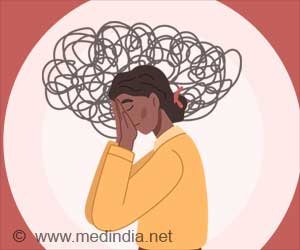Do You Always Assume the Worst of Every Situation?

It’s like being a VIP member of the Anxiety Club, where everything is seen as a potential disaster, and the person feels right in the middle of it. Essentially, it’s an exhausting journey of navigating life’s challenges while constantly preparing for the worst-case scenario.
Catastrophic thinking, a term coined by psychologist Albert Ellis in 1957, refers to a cognitive distortion that significantly affects a person’s well-being by dragging them into a cycle of negativity and shame.
Advertisement
It involves irrational and exaggerated thought patterns that pave the way for anxiety and distress. According to Patrick Keelan, a psychologist from Canada, it’s a way of thinking that skews negatively, intensifying emotions too overwhelming levels that are difficult to manage ().
The Impact of Catastrophic Thinking on Well-being and Mental Health
Typically, catastrophic thinking arises from an intense focus on the “worst possible outcome” in any given situation, which quickly becomes the perceived “most likely outcome” in the mind of a catastrophic thinker. This tendency is partly driven by confirmation bias, where individuals seek out information that supports their negative beliefs while disregarding evidence to the contrary.
Ron Breazeale, a clinical psychologist, vividly describes what this entails: Imagine being deployed in a foreign country for a couple of months and regularly communicating with your spouse and children. Suddenly, you experience connection issues while trying to reach them.
This triggers thoughts about the stress your deployment might be causing your family. A fleeting idea pops into your head: “He’s left me.” You obsess over this thought, even though you’ve been married for a long time without any separation. You begin to believe that your spouse has found someone else to support him and the children, despite having no evidence. Instead of focusing on your responsibilities, you ruminate about this belief.
The propensity to magnify minor issues is often accompanied by an internal dialogue filled with self-doubt and self-criticism. This pervasive sense of shame, stemming from perceived inadequacies or failures, becomes a tool to justify irrational thinking. Consequently, shame further fuels catastrophic thinking, perpetuating the cycle of negativity and self-judgment.
Catastrophizing as a Precursor to Anxiety and Depression
Research indicates that catastrophic thinkers are at a higher risk of developing post-traumatic stress disorder (PTSD). Interestingly, experiencing PTSD increases the likelihood of catastrophizing. Trauma is seen as proof that the worst can happen and as a sign that only traumatic events will occur from now on.
This mindset excludes any consideration of alternative outcomes. Over time, catastrophic thinking becomes a daily coping strategy aimed at avoiding dangerous situations. However, repeatedly engaging in catastrophic thoughts can be paralyzing, leading to extreme anxiety, avoidance behaviors, and isolation.
It is not surprising that studies have found catastrophic thinking to be a precursor to anxiety and depression. The feelings of hopelessness that arise from being trapped in a negative spiral can contribute to depression, while constantly dwelling on negative outcomes can trigger anxiety symptoms.
Moreover, catastrophic thinking is also common among individuals who are neurodivergent, particularly those with autism, attention deficit hyperactivity disorder (ADHD), and obsessive-compulsive disorder (OCD). In people with OCD, catastrophizing is triggered by fixating on highly improbable but catastrophic outcomes.
For autistic and ADHD individuals, it stems from emotional dysregulation, negative core beliefs, and the challenging experiences of living in a world that often discriminates against their neurotypes. Interestingly, anxiety, depression, and post-traumatic stress disorders (PTSD or C-PTSD) frequently co-occur with OCD, ADHD, and autism.
Additionally, catastrophizing can lead to avoidance behaviors as a coping mechanism, causing individuals to avoid certain situations altogether and hindering their personal growth.
The sense of isolation that follows the cycle of negativity and shame further reinforces this avoidance, leading to withdrawal from social interactions and missed opportunities due to fear of judgment or failure.
Escaping the cycle of catastrophic thinking is not easy, especially considering that it is fueled by intrusive thoughts. However, through cultivating self-compassion, undergoing therapy, and utilizing various tools to combat catastrophizing, individuals can manage and prevent it from taking control of their lives. As Breazeale suggests, it’s important to manage catastrophic thinking rather than discounting it entirely.
Reference :
- Catastrophizing and anxiety sensitivity mediate the relationship between persistent pain and emotional eating – (https:pubmed.ncbi.nlm.nih.gov/27025796/)
Source: Medindia
Source link
#Assume #Worst #Situation



